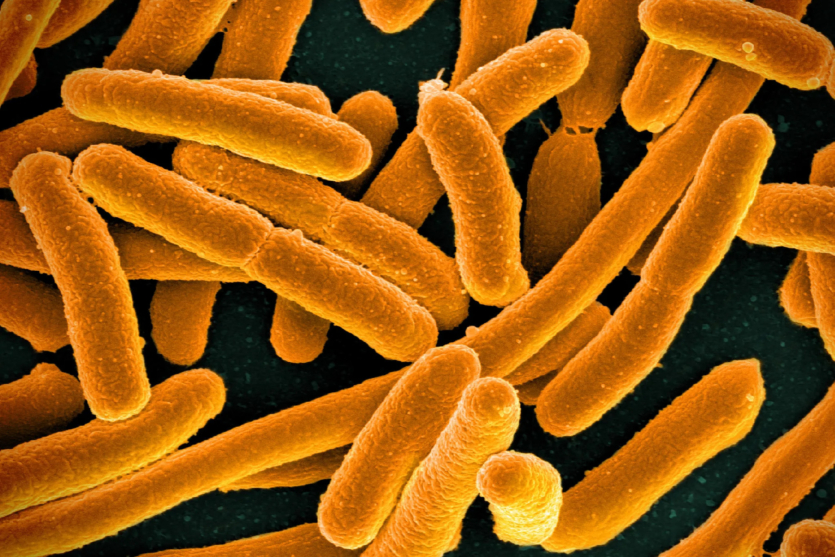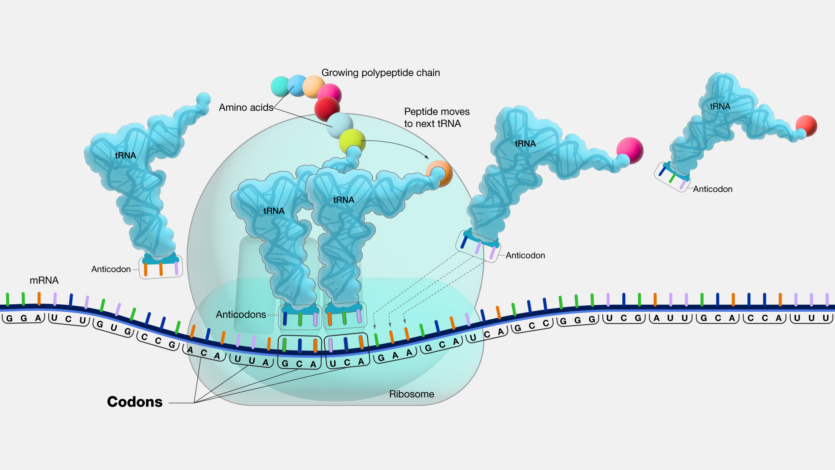
A group of researchers from the Medical Research Council’s Laboratory of Molecular Biology in the UK has created a synthetic E. coli bacterium Escherichia coli, using only 57 of the 64 “codons” in the genome.
The code of living organisms includes 64 different codons, each of which consists of from a triplet of nucleotides. It is the long chains of triplets that make up Human DNA and RNA.
They give the cells in the body key instructions from the transformation of ordinary matter into the building blocks of life — amino acids that line up in a specific sequence to form proteins. When a cell builds proteins, it “reads” the sequence of codons, written in using these 64 nucleotide triplets, to find out which amino acids to add next and when to stop.
All living organisms can create the proteins they need from just 20 amino acids, which means that many codons are synonymous duplicates. The synthetic E. coli, created by british researchers, called Syn57, lacks some of these seemingly redundant codons.

By creating the entire genome from scratch, the researchers decided to eliminate four of the six codons associated with the amino acid serine, two of the four alanine codons, and one stop codon. In cases where these redundant codons were found in the bacterial genome, the researchers replaced them with synonymous codons containing the same instructions.
This required more than 101 thousand changes to the genetic code. At first, they were planned on a computer in fragments of 100 kilobytes, and then the painstaking work of assembling the gene began. To ensure that they did not introduce fundamentally harmful changes to the microbes, the research team gradually tested small fragments of the synthetic genome on live bacteria, eventually stitching them together to form the final, fully synthetic strain.
This is a major undertaking that shows, that life can exist even with a significantly compressed genetic code. In addition, it potentially frees up the remaining codons, to perform other functions.
“Syn57 has more room for introducing additional non-canonical amino acids, which opens up great opportunities for further expansion of the genetic code. This will allow researchers to develop innovative synthetic polymers and macrocycles”, — the British team said in a press release.
Since the “non-canonical” genetic code of Syn57 should be incomprehensible to real microbes, including viruses that act by interfering with cellular protein production, this bacterium must be able to resist infection. This can help reduce the costs associated with the industrial “cultivation” of bacterial proteins, where virus outbreaks are a serious problem. This genome, which is completely incomprehensible to real organisms, can also effectively sterilize genetically modified bacteria, which is an attractive prospect for solving problems associated with the penetration of modified genes into the natural environment.
The results of the study are published in the journal Science
Source: Science Alert

Spelling error report
The following text will be sent to our editors: